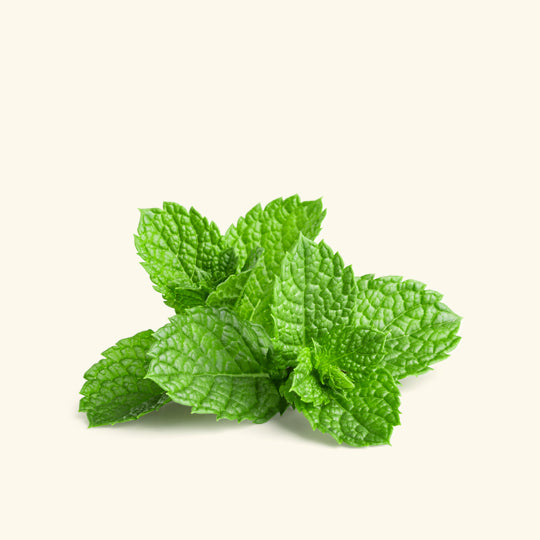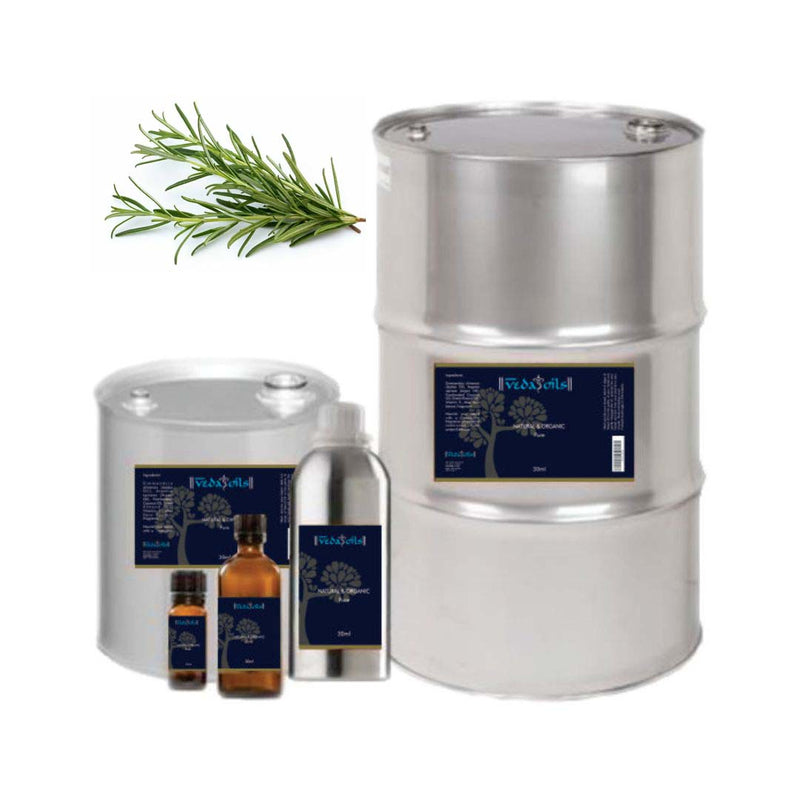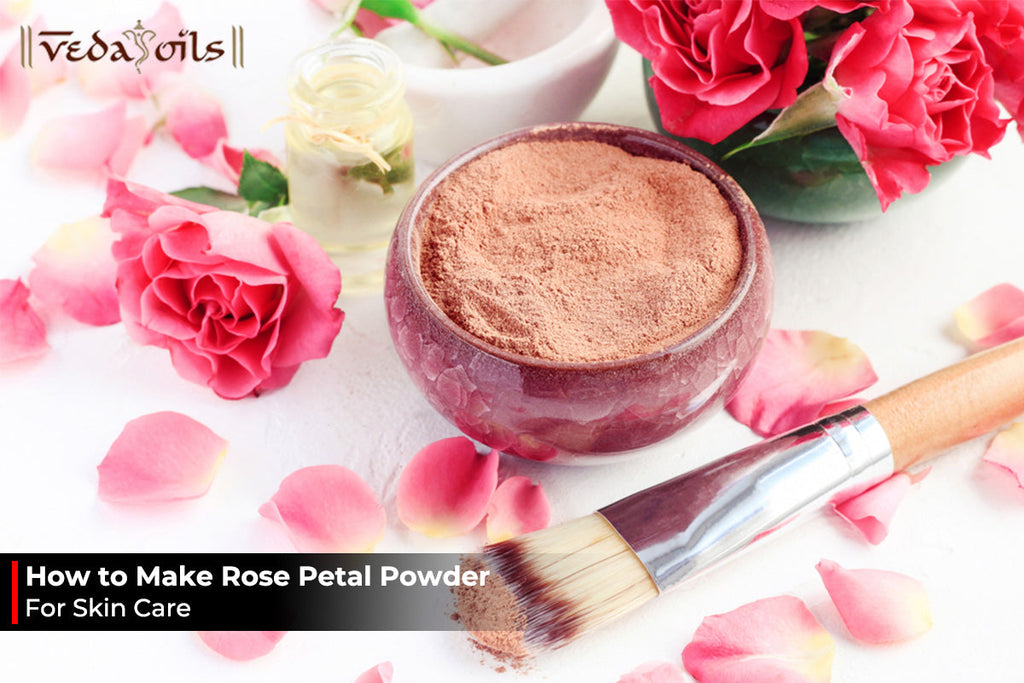Homemade Rosemary Mint Shampoo - How To Make?
Many of us aspire to have hair that is healthy and thick. Commercial shampoos often contain harsh chemicals that can strip the hair of its natural oils, leaving it dry and damaged. Fortunately, a natural alternative can provide both cleanliness and nourishment to your hair: homemade rosemary mint shampoo.

This refreshing and aromatic shampoo not only cleanses the scalp and hair effectively but also offers a range of benefits due to the natural properties of rosemary and mint. In this blog post, we will explore the benefits of rosemary mint shampoo and guide you through making your own.
DIY Rosemary Mint Shampoo Benefits
Rosemary and mint are not just ordinary herbs. They possess numerous benefits for your hair and scalp. Combined with homemade shampoo, they can work wonders to improve the health and appearance of your hair. Let's delve into the homemade rosemary mint shampoo benefits.
- Stimulates Hair Growth: Rosemary has been known for its hair growth-promoting properties. It increases blood flow to the scalp, nourishing the hair follicles and encouraging growth. Mint also aids in improving blood flow to the scalp, contributing to healthy hair growth.
- Reduces Dandruff: Combining rosemary and mint in the shampoo helps combat dandruff effectively. Rosemary possesses anti-inflammatory and antimicrobial properties that can alleviate scalp irritation and reduce dandruff flakes. Mint has a cooling effect that soothes the scalp and helps control dandruff.

- Refreshes and Revitalizes: The refreshing scent of rosemary and mint in the shampoo can awaken your senses and revitalize your hair. The aromatic properties of these herbs provide a pleasant and refreshing experience during your hair care routine.
- Nourishes and Conditions: Rosemary mint shampoo contains natural ingredients like aloe vera gel and virgin coconut oil, which provide nourishment and conditioning to your hair. Aloe vera gel moisturizes the hair, leaving it soft and smooth, while virgin coconut oil helps hydrate and improve your hair's overall texture.
- Enhances Scalp Health: Rosemary and mint possess properties that can improve the health of your scalp. They have antimicrobial and anti-inflammatory effects, which can help reduce scalp irritation, itchiness, and inflammation. Using rosemary mint shampoo regularly can contribute to a healthier scalp environment.
Rosemary Mint Shampoo Ingredients
The key to creating an effective rosemary mint shampoo is carefully selecting ingredients. To make this homemade shampoo, you will need a few simple yet potent components that can be easily found in your kitchen or local grocery store. Let's look at the ingredients required for homemade rosemary mint shampoo.
1. Rosemary Essential Oil: Rosemary essential oil is rich in antioxidants, which help stimulate hair follicles and promote hair growth. It enhances blood flow to the scalp, feeding the roots of the hair. Additionally, rosemary essential oil has antimicrobial properties that help prevent dandruff and reduce scalp irritation.
2. Peppermint Essential Oil: Peppermint essential oil provides a cooling and soothing effect on the scalp. It helps calm scalp inflammation and itchiness, promoting a healthy scalp environment. Peppermint essential oil also has a refreshing aroma that invigorates the senses during hair washing.

3. Liquid Castile Soap: Castile soap is a gentle and natural cleanser derived from vegetable oils. It removes dirt, excess oil, and product buildup from the scalp and hair without stripping away natural oils. It provides a mild cleansing action to ensure the hair and scalp are clean and refreshed.
4. Aloe Vera Gel: Aloe vera gel is a natural moisturizer that hydrates and nourishes the hair. It helps improve the texture and shine of the hair while soothing the scalp. Aloe vera also contains vitamins and minerals that promote hair health and growth.
5. Virgin Coconut Oil: Virgin coconut oil is well-known for its nourishing and conditioning properties. It enters the hair shaft and hydrates deeply while reducing moisture loss. Virgin coconut oil helps reduce frizz, improves hair manageability, and enhances overall health.
Ingredients List:
- Distilled Water - 1 Cup
- Aloe Vera Gel - 1 Tablespoon
- Peppermint Essential Oil - 10 Drops
- Liquid Castile Soap - 1/4 Cup
- Virgin Coconut Oil - 1 Tablespoon
- Rosemary Essential Oil - 10 Drops
How To Make Rosemary Mint Shampoo at Home
Step 1: Combine the distilled water, liquid castile soap, aloe vera gel, and virgin coconut oil in a mixing bowl.

Step 2: Add the rosemary and peppermint essential oils to the mixture. Make sure to completely incorporate all the components by stirring well.
Step 3: Transfer the shampoo mixture into a suitable container for easy use and storage, preferably a pump bottle.
Step 4: Label the bottle with the contents and the date of preparation. Your Homemade Rosemary Mint Shampoo is now ready to use!
Conclusion
By making your rosemary mint shampoo, you can enjoy the benefits of natural ingredients without the harsh chemicals in commercial products. The refreshing scent of rosemary and mint will awaken your senses while promoting hair growth, reducing dandruff, and providing nourishment. Try this homemade shampoo and experience the wonders it can do for your hair. Visit us at www.VedaOils.com and make your best homemade rosemary mint shampoo.
You May Also Like:
Buy Products
-
 Peppermint Essential Oil
Peppermint Essential Oil -
 Peppermint Hydrosol
Peppermint Hydrosol -
 Rosemary Essential Oil
Rosemary Essential Oil -
 Rosemary Hydrosol
Rosemary Hydrosol -
 Rosemary Oleoresins
Rosemary Oleoresins
Related Articles
-
 How to Make Marble Candles | DIY Marble Pillar Candle
How to Make Marble Candles | DIY Marble Pillar Candle -
 DIY Tanning Oil - Best Homemade Recipes For Tan Removal
DIY Tanning Oil - Best Homemade Recipes For Tan Removal -
 Homemade Mustache Wax: Best DIY Recipe With Natural Ingredients
Homemade Mustache Wax: Best DIY Recipe With Natural Ingredients -
 Kojic Acid vs. Glycolic Acid: Which Is Better for Skin Whitening?
Kojic Acid vs. Glycolic Acid: Which Is Better for Skin Whitening? -
 5 Best Grades of Essential Oils - The Grading System
5 Best Grades of Essential Oils - The Grading System -
 How to Make Rose Petal Powder For Skin Care Homemade Recipe
How to Make Rose Petal Powder For Skin Care Homemade Recipe
Disclaimer :- This article is intended for informational and educational purposes only and should not be considered a substitute for professional medical advice. For specific health concerns or treatment, please consult your personal physician. The article's editor, writer, and VedaOils organization do not assume any responsibility for any health outcomes resulting from the information provided. Readers are strongly encouraged to seek advice from their physician before acting on any recommendations made in these articles.

















 Sign in
Sign in Register now
Register now My Reward Points
My Reward Points









